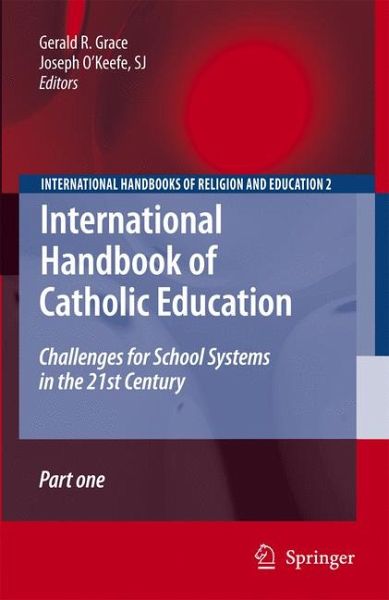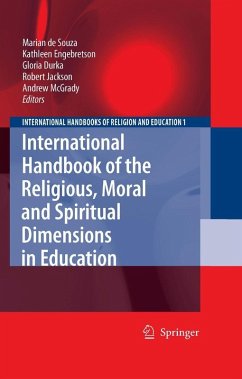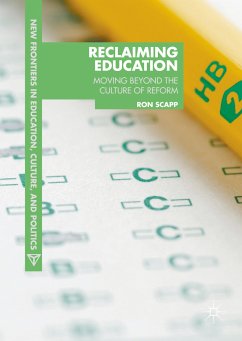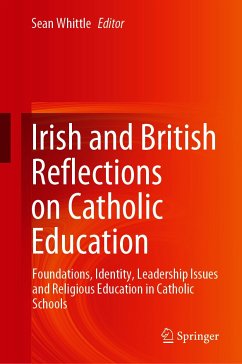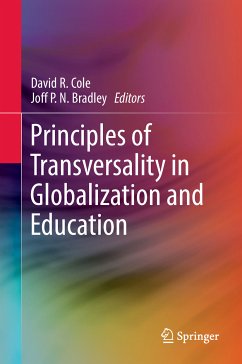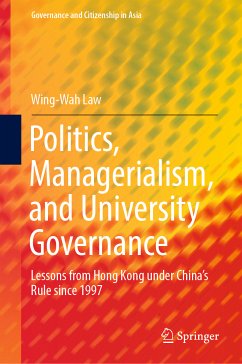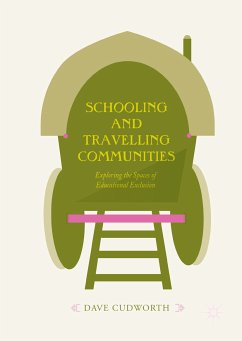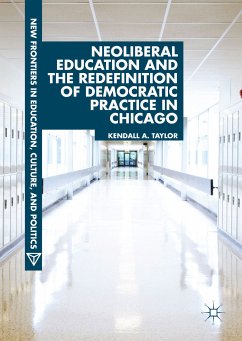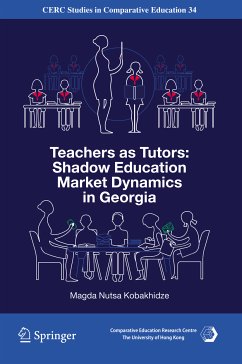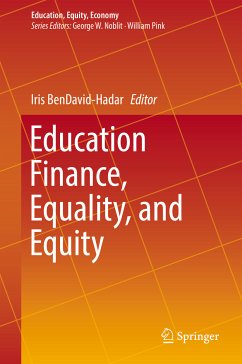written by experts, academic and practitioners, international scholars, researchers, school leaders and teachers. There are 45 chapters covering every continent each describing the challenges being faced by Catholic school systems in the 21
st century in that country. Each chapter is a systematic study of the challenges encountered and the editors have been careful to insist on a section on what the research agenda should be from each of their contributors. This provides an impetus for further research and Professor Grace has since launched the journal entitled International Studies in Catholic Education, first published by Routledge in March 2009. This journal continues the aims of the two volume text in providing even more research evidence on Catholic education across the world.
Professor Gerald Grace, is the Director of the Centre for Research and Development in Catholic Education in the Institute of Education, University of London. A Centre he founded and which has made the most, perhaps the only, important contribution to the study of Catholic education in the UK. His leadership and vision have provided educationalists, and the Catholic Church, with a new university-basedCentre, a new and prestigious academic international journal and these two volumes which clearly place the academic study and research of Catholic education on an international footing. It is an extremely impressive story and one that ought to be more widely recognised and celebrated. Grace also published his own ground breaking research in 2002 as Catholic Schools: Mission, Market and Morality (Routledge).
The editors outline in the introductory chapter to the Handbook an excellent summary of the ten major challenges facing Catholic schools. These challenges are found in the 45 chapters in the Handbook and are, because of their importance, worth mentioning here in brief:
- The impact of secularisation;
- The impact of global capitalism;
- The authenticity of mission integrity;
- Issues of faith formation;
- Moral and social formation;
- Problems of recruitment of staff;
- The decline in religious congregations;
- Female education;
- Student attitudes to the Church;
- The finance of Catholic education.
Many of these issues are interconnected and the chapter which attempts to cover most of them is the one by Archbishop Michael Miller CSB. This chapter entitled 'Challenges Facing Catholic Education: A View from Rome' was written whilst Archbishop Miller was still Secretary of the Congregation for Catholic Education in Rome and his willingness to write so extensively in this chapter demonstrates the high regard in which Professor Grace is held. I would recommend this chapter first, after reading the important introduction, to anyone reading this Handbook. Indeed, the Handbook is not a book that one would read through and for many it will be a reference point for specific countries. However,the overview provided by the editors and the chapter by Archbishop Miller are essential reading for anyone attempting to understand contemporary Catholic education. Both endorse a call for stronger scholarly and research/evidenced-based studies that inform policy approaches in Catholic schooling.
In Section 1 (USA and Canada) of the Handbook the chapter on 'Developments in catholic Schools in the USA: Politics, Policy and Prophesy' by Gerald Cattaro and Bruce Cooper neatly summarises the major issues facing Catholic schools in the USA over the last decade. It provides detailed statistics and very good analysis and explanation of important trends. In Section 2 (Latin America) the chapter by Jeffrey Klaiber on 'Catholic Schools in Peru: Elites, The Poor, and the Challenge of Neoliberalism' is well written and a short introduction to an important issue in the context of Latin America. Section 4 deals with Africa and there is an excellent chapter by Mark Potterton and Nathan Johnston entitled 'A Beacon of Hope: Catholic Schooling in South Africa'. Both these authors have long experience of the situation in South Africa and this chapter demonstrates a clear grasp of the issues. Section 5 looks at India and the Middle East with three chapters devoted to India and one to schooling in the Holy Land. Section 6 looks to the Philippines and Thailand whilst Section 7 examines Hong Kong and Japan. The chapter by Magdalena Mo Ching Mok is particularly worth reading and is simply entitled 'Challenges for catholic Schooling in Hong Kong'. The final Section 8 considers Australia and New Zealand. The first two chapters on Australia by Susan Pascoe and Brian Coke contain a wealth of information and explanation on the challenges being faced within this particular political and religious landscape. There are of course many more chapters in each section - far too many to mention in this brief review.
Each of the chapters naturallyvary in length and style, but each surveys the challenges within particular territories and each gives some thought to a research agenda for the future. This Handbook is a must for any doctoral students in Catholic education and will no doubt inspire and practically assist them in choosing areas for research. The combined references alone make this Handbook an essential reference work. The chapters that address the political contexts and Church-State relations in various countries are particularly enlightening and show common patterns of issues. The editors are right to see these chapters as raising strategic research areas for the future. There are only two critical comments I would make of this Handbook. First, many priests and religious have contributed to this Handbook making it slightly clerical in feel and there is a tendency for the chapters to be written from a liberal Catholic perspective. Second, the chapters that deal with secularisation issues are limited in theoretical scope. However, the Handbook overall is an astonishing achievement and I congratulate the editors and recommend it strongly.
Professor James Arthur Co-Editor : BJES
